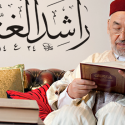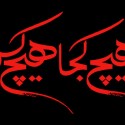We can certainly move the present as well as the future generation towards the new Islamic civilization through setting our eyes on horizons farther away, being together with understanding and helping each other as brothers. For this to become a reality, all of us must dedicate ourselves to the realization of the “Islamic civil society in our respective countries. The civil society which we want to promote and perfect in our society and which we recommend to other Islamic societies is fundamentally different from the “civil society” that is rooted in the Greek philosophical thinking and Roman political tradition and which, having gone through the Middle Ages, has acquired its peculiar orientation and identity in the modern world.

While the Western civil society, historically as well as theoretically, is derived from the Greek city-states and the later Roman political system, the civil society we have in mind has its origin, from a historical and theoretical point of view, in “Madinat ul-Nabi.” Changing “Yathreb” to “Madinat ul-Nabi” was not just a change of name, nor did the change from “Ayyam-ul -Jahiliah” (Days of Ignorance) to “Ayyam -Ullah” (Days of Allah/God) represent just an alteration of designation. “Madinah” is not soil and territory just as “Yaum – Ullah” does not stand for time.
With “Madinat-ul-Nabi” and “Ayyam-Ullah” a moral geography and history comes into existence that ushers the beginning of a new outlook, character and culture, which once became a reality in the early days of Islam. This culture, with its unique and distinct view of existence and man and their origin, has for centuries lived in the depth of the soul and collective memory of Muslims. Now, more than ever before, Muslims need to take abode in their own common home. However, the original singular human essence has over time acquired different semblances and flavors as a result of ethnic, geographical and social differences among Muslims. Nevertheless, “Madinat -ul Nabi” remains as our eternal moral abode and “Yaum – Ullah” continues to flow in the present and through all moments of our lives, or else they should. Madinah emerged from the land of polytheism and oppression just as “Yaum -Ullah” began as a result of a break with the time of darkness (Jahiliah) and an entry into the sacred realm of Divine “Time and Presence.”
Taking abode in the “common Islamic home” does not mean regression, rejection of scientific achievements, withdrawal from the modern world or seeking conflict with others. On the contrary, it is only after such a return to the common identity that we can live in peace and tranquillity with other peoples and nations. Living in peace and security can be realised only when one fully understands not only the culture and thinking but also the concerns as well as the ways and manners of others. Sophisticated understanding of the cultural and moral dimensions of other societies and nations entails establishment of dialogue with them. A meaningful dialogue can take place only when the parties concerned find themselves in their own genuine true cultural sphere, otherwise the dialogue between an alienated imitator and others would be meaningless and certainly void of any good or benefit.
Seeking abode in the common Islamic home – “Madinat – ul Nabi” – is tantamount to the assuming by Muslims of their true position and the securing their true Islamic identity.
In the civil society that we espouse, which is centered around the axis of Islamic thinking and culture, however, personal or group dictatorship or even dictatorship of the majority and elimination of the minority has no place. In such a society man, due to the very attribute of being human, is venerated and revered and his rights respected.
Citizens of the Islamic civil society enjoy the right to determine their own destiny, supervise the administration of affairs and hold the government accountable. The government in such a society is the servant of the people and not their master, and in every eventuality, is accountable to the people whom God has entitled to determine their own destiny. Our civil society is not a society where only Muslims are entitled to rights and are considered citizens. Rather, all individuals are entitled to rights, within the framework of the law. Defending such rights ranks among the fundamental duties of the government.
Respect for human rights and compliance with their relevant norms and standards is not a posture adopted out of political expediency or conformity with others. Rather it is the natural consequence of our religious teaching and precepts. Amir Al-Mu’menin Imam Ali (AS) enjoined his representative to observe the principle of justice and equity as regards all people and not Muslims only, for “They are of two groups; a group of them are your brothers in faith and the other are like you in creation.”
Our civil society neither seeks to dominate others nor to submit to domination. It recognises the right of other nations to self-determination and access to the necessary means for an honourable living. Determined not to yield to force and coercion and in its drive to stand on its own feet, our civil society, as instructed by the Holy Qur’an, considers itself entitled to acquire all requisite means for material and technical progress and authority. And the rejection of domination and subservience no doubt means the rejection of force and duplicity in the relations with other nations and their replacement with logic and the principle of mutual respect in international relations.
The civil society which we aspire to establish is based on our collective identity whose attainment requires the continuous and ceaseless endeavours of intellectuals and thinkers. It is not a treasure that can be unearthed overnight, rather, it is a fountain of life and morality from whose constant effusion we will benefit. Therefore enjoyment of this treasure is gradual and dependent on scrupulous cognisance and re-examination of our heritage as well as our doctrinal and intellectual tradition on the one hand, and sophisticated, scientific and philosophical understanding of the modern world on the other. Hence, it is the thinkers and men of learning who are pivotal in this movement and play the principal role. Our success along this path depends upon politics serving thought and virtue and not acting as a confined and restrictive framework for them…”
Source : Islam21.
1 Statement by, H.E. Seyyed Mohammad Khatami, President of the Islamic Republic of Iran and, Chairman of the Eighth Session of the Islamic Summit Conference, Tehran, 9 December 1997.



 This search is powered By Nawaat experimental generative artificial intelligence. Begin typing your search or question above then press return. Press Esc to cancel.
This search is powered By Nawaat experimental generative artificial intelligence. Begin typing your search or question above then press return. Press Esc to cancel.
iThere are no comments
Add yours